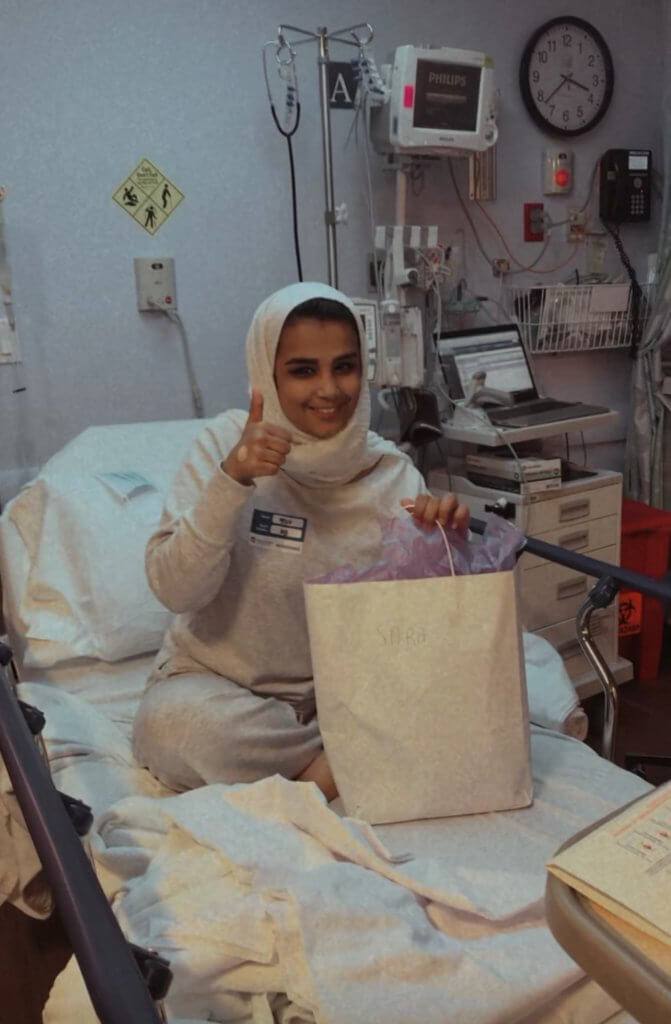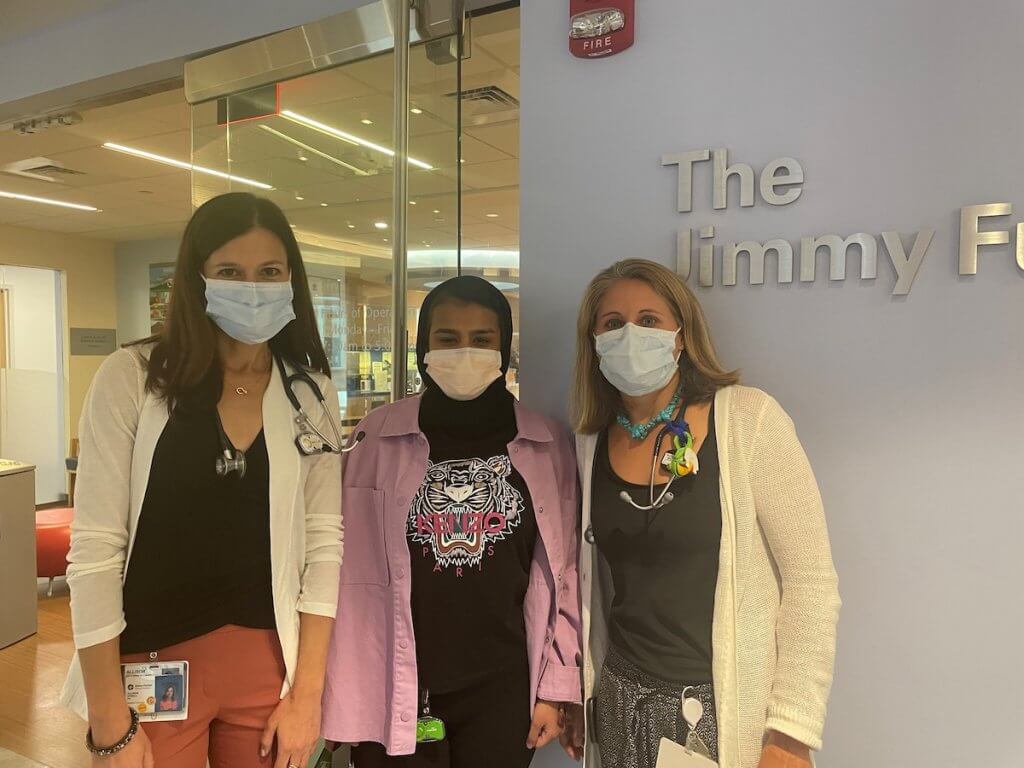Most teenagers can’t wait to grow up. At 19, Sara Almheiri was initially deemed too old — at least by the physicians who first diagnosed her with cancer.
Complaining of terrible bellyaches that baffled doctors in her native Dubai, part of the United Arab Emirates (UAE), Sara had traveled in late 2016 to South Korea, where medical care was more advanced. Doctors there determined she had pediatric neuroblastoma, a cancerous tumor that forms in the immature nerve cells of infants and young children. Most often diagnosed in children under the age of five, pediatric neuroblastoma is rarely seen in those older than 10.
The doctors, who had never treated a teenage patient with neuroblastoma, declared her case hopeless.
“They said my cancer only happens in babies, and that I had no more than 45 days to live,” says Sara, now 24. “Then they told my parents to bring me home so I could die around my family and friends.”
Sara’s mother and father chose a different route. In early 2017 they brought Sara to the United States, and Dana-Farber/Boston Children’s Cancer and Blood Disorders Center. Familiar with treating older pediatric neuroblastoma patients, a team at Dana-Farber/Boston led by oncologist Allison O’Neill, MD, stabilized Sara’s disease. Five years later, she’s still on treatment and enjoying life with her family in the Boston area.
“At Dana-Farber/Boston Children’s, they welcomed us and gave us hope and motivation,” says Muneera Alyassi, Sara’s mother. “We are so confident with their treatment and medications. It was the best decision to bring her here.”

Searching for specialists
One of five siblings, Sara was at college in the UAE studying business when she first began experiencing stomach aches in April 2016. She lived with the pain for a few months, but by that fall school friends were accompanying her to local hospitals for weekly injections and painkillers. Doctors could not find the cause of the discomfort, and when it persisted Sara traveled with her parents to Abu Dhabi, capital of the UAE, for more extensive testing.
“A doctor there told us it was a tumor, but he didn’t know if it was cancer,” says Sara. “He said he could take it out, but my father wanted to go outside the country.”
The embassy sent the family to Korea first, and when doctors there refused to treat Sara, her parents took action.
“We spoke to the UAE embassy in Korea and told them we wanted Sara treated in the U.S., where they have the best pediatric cancer hospitals,” says Abdulla Almheiri, Sara’s father. “They sent us to Dana-Farber/Boston Children’s.”
The Almheiri family arrived at Dana-Farber/Boston Children’s on Feb. 16, 2017, four days before Sara’s 20th birthday. Meeting with O’Neill, they received encouraging news: the pediatric solid tumor team at Dana-Farber/Boston Children’s had previously treated older pediatric neuroblastoma patients, and was currently caring for a 20-year-old with the same cancer as Sara’s.
“That was very comforting,” Sara recalls. “Now we had hope.”
By this point, the orange-sized tumor initially found in Sara’s adrenal gland had spread to the bones of her shoulders, spine, legs, and skull. She often needed the use of a wheelchair during her initial chemotherapy infusions. Her parents were then living at a nearby hotel, and Sara alternated between staying with them and at Boston Children’s Hospital.
“Sara embarked upon standard of care therapy for high-risk neuroblastoma, and when she experienced innumerable side effects, we had to deviate from her original treatment plan,” says O’Neill, clinical director of the Solid Tumor Center at Dana-Farber/Boston Children’s. “Sara transitioned to oral chemotherapy and subsequently to immunotherapy. Her cancer started to respond beautifully to the immunotherapy, and she eventually became a candidate for surgery.”

Forging a new life
As O’Neill, nurse practitioner Casey Wall, PNP. and other clinicians continued treating Sara, she adjusted to life in a new country. She learned English, made friends, and was delighted when her three younger siblings moved to the United States and joined Sara and her parents in a townhouse located just a few miles from Dana-Farber/Boston Children’s.
By late 2021, Sara’s cancer was stabilized enough that her primary tumor could be surgically removed. Now she is receiving antibody therapy, a form of immunotherapy designed to stimulate the body’s immune system to attack cancer cells without the toxicity of chemotherapy.
“When we visualized her tumor under the microscope after surgery, we found that the cancerous cells were more mature, or differentiating,” explains Wall. “She had already received a lot of chemotherapy. so much so that we were worried about secondary leukemia. For these two reasons, we felt like antibody treatment was the best approach, and Sara has responded very well to it.”
Feeling healthier, and stronger, Sara is going to the gym regularly and driving herself to her appointments at Dana-Farber/Boston Children’s. She’s looking into taking classes toward her bachelor’s degree, and in addition to staying in touch with friends, her older brother, and extended family back in Dubai has bonded with a community of young UAE transplants in the Boston area.
And although she hopes one day to be well enough to return home, she jokes that her sisters “want me to keep getting treatment here” so that they can stay in the United States.
